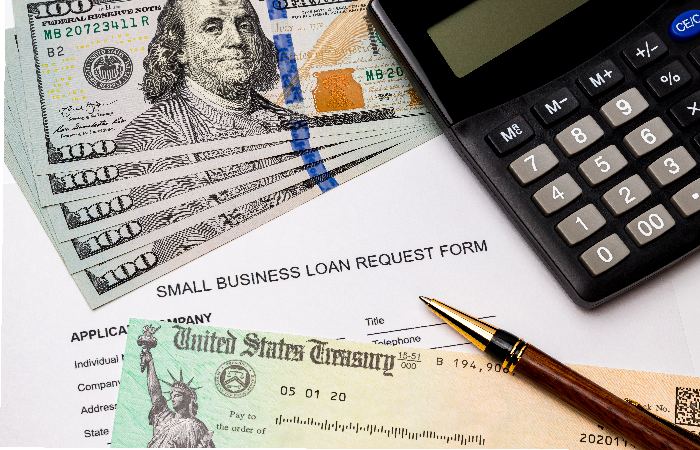Merchant Cash Advance – Expanding your small business without negatively impacting your operational funds is crucial to ensure your business profits don’t shrink. Hence, when growing your business, it’s necessary to consider business expansion costs and choose the right funding solution. Notably, there are several ways to fund your business growth, and you may have probably considered applying for bank loans to support your business.
But if you’re among those small businesses turned down for a traditional bank loan, you can still fund your business with the help of direct lenders that offer short-term financing options like merchant cash advance companies. Thus, if you’re considering applying for a merchant cash advance for small business, you can visit different websites to apply for this financing option online.
However, if you’re still uncertain about a merchant cash advance and whether it’s right for you, read the critical points below to find out what it is, how it works, and its advantages and disadvantages.
Table of Contents
What Is Merchant Cash Advance?
Generally, cash advances allow businesses to borrow an immediate amount of cash against their future business income. Technically, with this financing method, business people are selling their future revenue in exchange for instant cash. In particular, a merchant cash advance is a specific type of cash advance that you can apply for, particularly if your business needs an immediate funding solution. It’s a good alternative that serves as a short-term source of financing, especially if your small business can’t get funding from traditional banks and other sources.
When getting a merchant cash advance, financing providers will require your business to have daily credit card transactions from your customers and proof of at least three to four months of credit sales.
How Does A Merchant Cash Advance Work?
If your business primarily relies on credit and debit card sales, merchant cash advance companies will likely approve your application. But if you don’t have high credit or debit sales, two merchant cash advance structures would allow you to get immediate cash. The first structure is a traditional merchant cash advance or ‘holdback.’ In this method, your business would get an upfront sum. When paying the loan, you’ll need to debit a percentage of your company’s weekly sales to the cash advance company until you repay the advance and its fees.
Furthermore, the second structure is ACH advance, also known as automated clearinghouse merchant cash advance. In this method, your business would obtain an upfront sum of cash, and then you’ll have to repay the cash advance through the financing provider’s checking account. Unlike the first structure, the debited amount in an ACH merchant cash advances stays the same regardless of your business’ weekly sales.
Who Can Apply For A Merchant Cash Advance?
Merchant cash advances are usually for businesses that need immediate capital to expand their business or cover unexpected expenses. Notably, with a merchant cash advances, business leaders can use it to hire new staff, buy new equipment, or prepare for a high-demand season. Besides those companies that strive for growth or expansion, it’s also an ideal option for newly-established businesses that don’t qualify for a traditional business loan and other financing options.
Furthermore, it’s a good alternative for businesses lacking assets and looking for a short-term financing option with flexible repayment terms. Regardless of the size of a company, merchant cash advances are for businesses with a consistent flow of credit card transactions and even with less-than-perfect credit scores.
Advantages Of A Merchant Cash Advance
-
High Approval Rate
Unlike a traditional bank loan with strict criteria for a credit score to qualify for funding, a merchant cash advances is accessible to all businesses regardless of their lower credit rating.
-
Fast Access to Fund
You can receive the cash in advance in your account within as little as 24 hours of assessment. A merchant cash advances company will require you to submit your credit card bill statement and often decide to approve your application within a few hours.
-
Not Need to Use Property as Collateral
You don’t need to use your assets or property as collateral to qualify for a merchant cash advances. A merchant cash advances allows you to use your company’s future credit card payments to fund your business.
Disadvantages Of A Merchant Cash Advance
-
More Expensive
A merchant cash advances is far more expensive than other business funding options. Depending on the financing provider and your company’s credit sales strength, a merchant cash advances can deal with annual percentage rates (APR) ranging from 40% to 350%.
-
Short Repayment Terms
This financing option’s repayment terms are shorter than a traditional bank loan. It’s only an ideal option if your business needs short-term funding.
-
Complicated Contracts
While there’s only a little paperwork in a merchant cash advances, you may find the structure and language of its contracts complicated. Thus, you may need to hire an attorney to ensure you understand how the agreement works.
The Bottom Line
Although a merchant cash advances can provide an instant cash flow boost, it isn’t always the best funding solution. In particular, if you’re seeking to recover your business after a major disaster, this financing may not be suitable for your business. However, if you need immediate cash to grow your business and be more competitive, a merchant cash advances can be the right funding option for your business.



